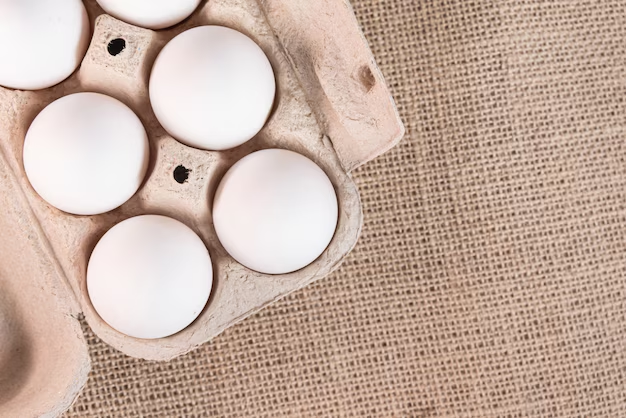How Long Can You Keep Cooked Eggs in the Refrigerator? 🥚
Eggs are a versatile and nutritious food staple, making them a common presence across households worldwide. Whether boiled, scrambled, poached, or made into frittatas, knowing how to store cooked eggs properly is key to minimizing food waste and ensuring safety. If you've ever pondered how long those cooked eggs can last in your refrigerator, this comprehensive guide is for you. Throughout this article, we'll delve into effective storage practices, safety tips, and the broader context of egg storage to address your concerns and offer practical insights.
The Shelf Life of Cooked Eggs
Understanding Cooked Eggs Shelf Life
Cooked eggs are generally safe to eat within a specific timeframe when stored properly. Typically, cooked eggs can last in the refrigerator for about 3 to 4 days. This applies to various forms such as hard-boiled, scrambled, or poached eggs. However, certain factors might influence this duration, like the temperature of your refrigerator and how soon after cooking the eggs were refrigerated.
Factors Affecting Shelf Life
Refrigerator Temperature: A refrigerator set at or below 40°F (4°C) slows bacterial growth significantly, crucial for extending the shelf life of cooked foods.
Type of Egg Dish: Simple cooked eggs like plain boiled or scrambled ones might last the typical 3-4 days, while composite dishes, such as frittatas with added ingredients, could spoil faster.
Storage Conditions: Storing eggs in airtight containers limits exposure to oxygen and moisture, reducing the potential for rapid spoilage.
Safe Egg Storage Practices
Best Practices for Storing Cooked Eggs
Use Airtight Containers: This prevents absorption of fridge odors and preserves moisture in cooked eggs, maintaining their texture.
Label Containers: Clearly label storage containers with the cooking date to track freshness effectively.
Refrigerate Promptly: Place eggs in the refrigerator within two hours of cooking to prevent bacterial growth, or within one hour if the ambient temperature is high.
Common Mistakes to Avoid
Leaving Eggs Out: Cooked eggs left at room temperature for more than two hours can develop bacteria quickly.
Incorrect Refrigeration: Avoid placing eggs in the refrigerator door, where temperature fluctuations are common. Instead, place them on a central shelf.
Interestingly, cooked eggs in different forms showcase unique storage characteristics.
Hard-Boiled Eggs
Peeling Dilemma: Peeled hard-boiled eggs should be stored in water-filled airtight containers to maintain moisture.
Longevity: They typically last up to a week in the refrigerator if unpeeled. Once peeled, aim to consume them within three days.
Scrambled Eggs
Moisture Retention: Storing scrambled eggs with a lid or in an airtight container prevents drying out.
Reheating Tip: Reheat slowly over medium-low heat to avoid a rubbery texture.
Tips for Identifying Spoilage
Signs Your Eggs May Have Gone Bad
- Odd Odor: Spoiled eggs release a distinct sulfuric smell.
- Texture Changes: Mushy, slimy, or gelatinous textures indicate spoilage.
- Color Alterations: Discoloration, whether it's grey or greenish tints, is a red flag.
The Importance of Proper Egg Handling and Safety
Practical Egg Safety Measures
- Clean Surfaces: Regularly clean preparation and cooking areas to minimize cross-contamination risks with raw or cooked eggs.
- Use Fresh Ingredients: Always start with fresh eggs to extend the overall potential for longer storage.
- Avoid Cross-Contamination: Store cooked and raw eggs separately to prevent bacteria from transferring.
A Closer Look at the Nutritional Value of Eggs
Eggs are a rich source of protein, vitamins, and minerals. Proper storage ensures you reap these benefits without the risk of foodborne illnesses. Including eggs in a balanced diet can support muscle health, brain function, and cardiovascular wellness.
Summary: Your Egg Storage Cheat Sheet 📌
Here's a quick reference guide to ensure your eggs are safely stored and enjoyed at their best:
- 🥚 Refrigerate cooked eggs within two hours to limit bacteria growth.
- 🕒 Aim to consume within 3-4 days for optimal safety.
- 📦 Use airtight containers and label with cooking dates.
- 🚫 Avoid storing in fridge doors where temps fluctuate.
Bringing It All Together
Understanding how long cooked eggs last and employing safe storage techniques can lengthen their usability while ensuring your meals are wholesome and nutritious. Whether you're meal-prepping for the week or managing leftovers from a big breakfast, keep these tips in mind. Preserving the freshness and safety of cooked eggs not only maximizes your groceries but also supports a health-conscious lifestyle. By implementing these practices, you can sit back, relax, and enjoy those eggs without a worry in sight!

